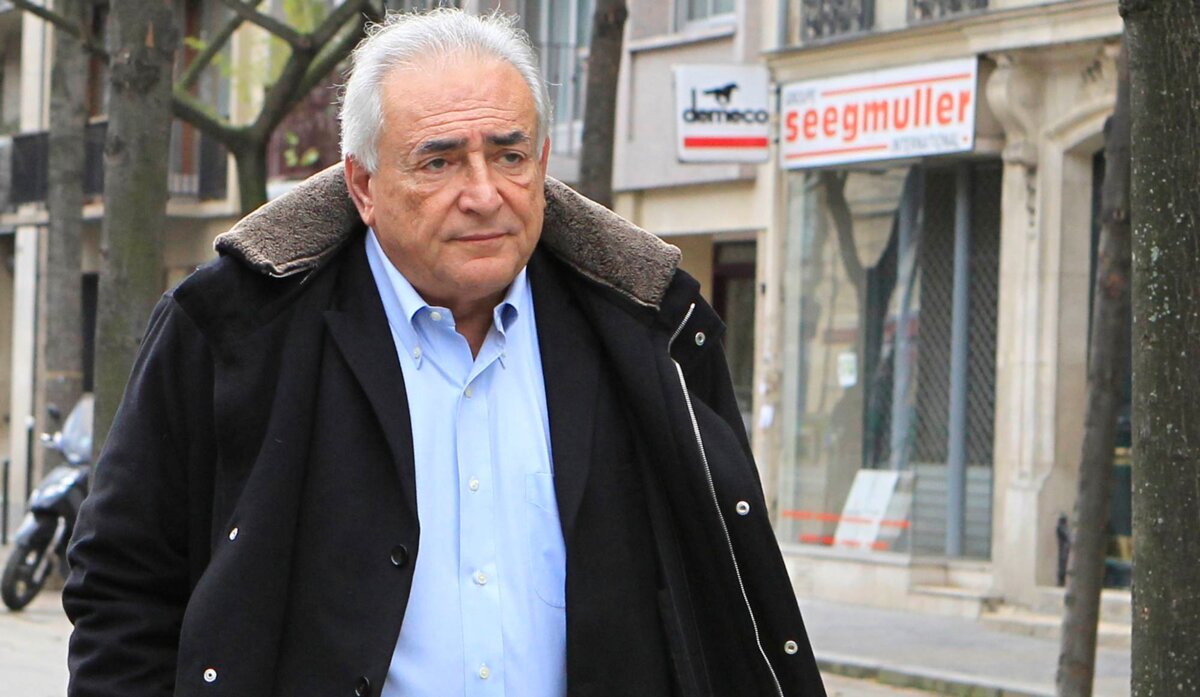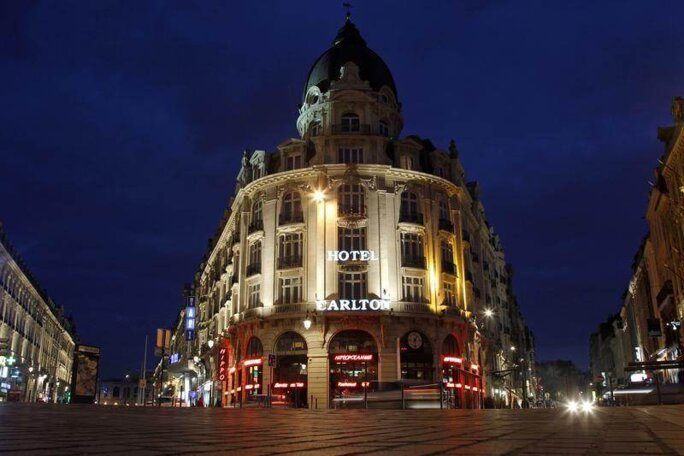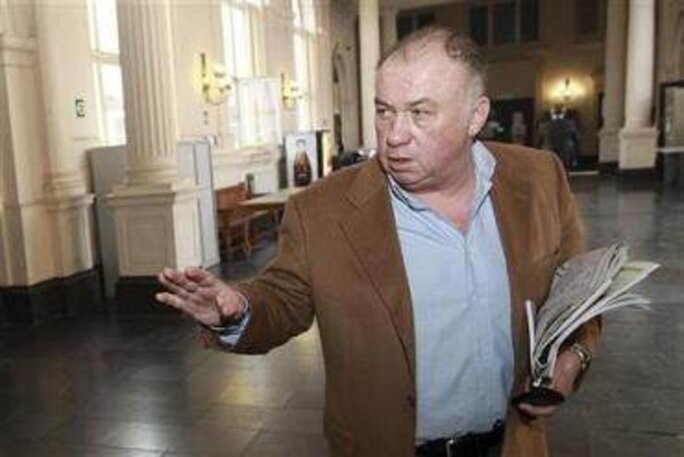Magistrates investigating a secret prostitution ring that allegedly staged orgies in luxury hotels and apartments in France and the US for the benefit of former International Monetary Fund chief Dominique Strauss-Kahn this month announced the completion of their two years of enquiries.
According to French law, formal charges and a trial date will be established only after three months from now, a period during which the 11 people placed under investigation by the magistrates, including Strauss-Kahn along with several businessmen and a ranking police officer, are entitled to lodge a request for further investigations.
Mediapart has gained access to a court document that details the case against Strauss-Kahn and others placed under investigation, extracts of which are published here. The magistrates in charge of the investigation conclude that the former IMF managing director, and one-time presidential hopeful, was the kingpin in the organisation of the orgies which were paid for by a group of associates based in the city of Lille in northern France.

Enlargement : Illustration 1

Strauss-Kahn, who has admitted taking part in the group sex parties while head of the IMF, has denied knowledge that the women taking part were prostitutes.
The announcement that the investigation had been completed was made in a letter sent by the magistrates to lawyers of the civil parties and those placed under investigation, dated March 13th.
What has become known as ‘the Carlton affair’ began on February 2nd 2011, with the opening of a preliminary investigation by the Lille public prosecutor’s office into information passed to police about a prostitution ring operating out of two hotels in the northern French city, the Carlton and the Hôtel des Tours.
After phone taps revealed further evidence of the ring, a full-blown judicial investigation was opened on March 28th 2011 into suspected “procuring by organised gangs, criminal conspiracy and money laundering by organised gangs”. The investigation was headed by two, and later three, examining magistrates, who extended their line of enquiries to include “forgery and use of forgeries”, “misuse of company assets” and “fraud” with regard to the payment of prostitutes, hotel rooms and travel costs via several company accounts.
A number of company directors, a leading police officer and a lawyer, all from Lille or the surrounding Nord-Pas-de-Calais département (equivalent to a county) were placed under investigation, a French legal move that is one step short of charges being brought. They were suspected of involvement in a network of prostitution, some for their personal satisfaction, others for offering a service to business clients and figures of the local social elite. Several of those placed under investigation were discovered to be members of Masonic lodges, among whom some were closely linked to the local regional branch of the Socialist Party.
But the case became a major scandal with the arrest and questioning, on February 21st 2012, of Dominique Strauss-Kahn, who by then had been disgraced by a series of allegations of sexual assault. The most notable of these was in May 2011, when Strauss-Kahn was arrested in New York for his alleged sexual assault upon a hotel chambermaid. The case forced his resignation from the IMF and brought an end to his political career just months ahead of his expected candidature to run as the French Socialist Party’s candidate for the 2012 presidential elections, before the charges were eventually dropped.
On March 26th 2012, the Lille-based magistrates placed Strauss-Kahn under investigation for “aggravated procuring with an organised gang”.
Mediapart has obtained access to an official court document that details his formal placing under investigation, and which summarises the cases against others also placed under investigation. Dated December 19th 2012, the 67-page document concerns the ruling by the Court of Appeal of Douai, a town close to Lille, which rejected an appeal lodged by Strauss-Kahn and four others placed under investigation for the case against them to be dropped.
It includes details of the investigations carried by the policed and magistrates leading the case, and as such offers an insight into what would may be the basis of the prosecution argument at an eventual trial.
A 'relationship founded upon force'
The former IMF chief lodged a subsequent appeal against the Douai appeal court ruling, which was described as a “judicial absurdity” by Henri Leclerc, one of Strauss-Kahn’s three lawyers. “I have never yet seen a placing under investigation for procurement founded on the acts for which Dominique Strauss-Kahn is called into question, and this [is true] even if he knew the nature of the activities of certain women implicated, which he denies,” said Leclerc in December. “Behind this case is the prosecution of the [prostitutes’] client, while French law hasn’t yet reached that stage.”
Contacted by Mediapart, Leclerc’s associate lawyer Frédérique Baulieu, who with Richard Malka makes up Strauss-Kahn’s legal team, said he had received no information for when the second appeal would be heard.

Enlargement : Illustration 2

In the document announcing its rejection of the appeals of the five under investigation, the Douai appeals court dedicates several pages to the case of Strauss-Kahn. It cites the three magistrates in charge of the case who produce a definition of the crime of procuring, under article 225-5 of the French criminal law. It is “the act, by anyone, in any given manner, of helping, assisting or protecting the prostitution of another, of profiting from the prostitution of another, of sharing the produce or receiving payment from a person who habitually engages in prostitution, of hiring, of inducing or corrupting a person for the aim of prostitution, or exerting pressure on that person to prostitute themselves or to continue to prostitute themselves.”
Strauss-Kahn was, the court document underlines, placed under investigation for having “helped, assisted and protected prostitution” in the cases of six women between March 2008 and October 2011, “with the circumstances being that the acts were committed among an organised gang concerning several people”.
To explain their decision to place him under investigation, the three examining magistrates in charge of the case list “grave or concordant” evidence discovered in their enquiries. This includes the observation that Strauss-Kahn could not have been ignorant of the fact that the women he regularly met with in evening were prostitutes. The concordant witness statements by women taking part, their appearance, the manner in which the parties were staged and the sexual practices that were imposed and submitted to, convinced the investigating magistrates that their activities were paid for.
The Douai appeal court magistrates’ ruling noted that, regarding Strauss-Kahn, the “witness statements indicate, as grave or concordant evidence, a behaviour on the part of the person concerned [Strauss-Kahn] that make it likely that he, despite suggesting his ignorance while all the same admitting that “upon reflection” he was no doubt “naïve”, was not in ignorance of the prostitution activities of the women [taking part], which allowed him to impose upon them a demanding relationship founded upon force, even the brutality of the dominator upon the dominated, without consideration for the object of their desires, knowing that dealing with prostitutes – even if he is not the one who pays – dispensed him from [asking for] their freely-given consent, or at least would avoid him from receiving complete refusal on their part.”
Prostitutes recruited 'uniquely to satisfy his needs'
However, Strauss-Kahn and his lawyers argued that the fact that he took part in what they describe as “libertine” parties where he might have unknowingly rubbed shoulders with prostitutes in no way makes him an accomplice to pimps, and even less a pimp himself.
The Douai appeals court magistrates responded to this with the observation that “certain elements established in the case file allowed the examining magistrates [in charge of the investigation] to consider that, far from being a simple client whose consumption was free of charge, Dominique Strauss-Kahn provided his help and assistance for the prostitution of others, making his participation in the process of prostitution likely by acts and behaviour that had created the favourable conditions for paid-for sexual encounters for which he benefited from by taking part”.
Among these “elements”, the Douai court magistrates noted that Strauss-Kahn made available the use “of an apartment in Paris”, which was rented out in the name of one of his friends and in which several women were involved in paid-for sexual acts with Strauss-Kahn and others, and which were financed by the businessman Fabrice Paszkowski. They also cite the reservation and payment of a hotel room by Strauss-Kahn, which they considered to be an act of “help or assistance” to prostitution activities.
The magistrates in charge of the investigation, who accessed records of mobile phone text messages exchanged between the suspects, believe that Strauss-Kahn was the “instigator” of the sexual parties. They cite three trips to Washington by the Lille businessmen involved with him in the orgies, between the end of 2010 and May 2011, when they were accompanied by prostitutes “in response to an invitation from Dominique Strauss-Kahn”. The magistrates’ report notes that the “recruitment process” of the women was carried out “according to the criteria” and “the expectations” of Strauss-Kahn.
The orgies, they continue, “are not organised without Dominique Strauss-Kahn” and “were organised according to his agenda, to the degree that the invitations were often sent out at the last minute, which, for the trips to Washington, made the price of flights more expensive”. These were paid for by Strauss-Kahn’s acquaintances in Lille and by their companies.
“The prostitutes were recruited with the unique aim of satisfying, as an absolute priority, his needs, illustrating the ‘professionalism’ of those recruited,” the magistrates write. They underline “the position of leadership of Dominique Strauss-Kahn within this structure”, even though he “passed on organizational tasks to Fabrice Paszkowski, whom he presented as his right-hand man.”
However, the magistrates state, Strauss-Kahn kept “his hand over everything” and picked the women he wanted present, a process which “he knew must lead to paid-for sexual relations during the parties shared with the initiators, organizers and guests.”
They conclude that Strauss-Kahn “in all knowledge initiated and largely favourised the creation of a system founded on the complicity of his close entourage, with the aim of satisfying his sexual requirements, thus favouring prostitution activities from which he profited directly, making this restrained and privileged circle, along with himself, an organised gang.”
Pleasing the man tipped to be future French president

The ten other people who have also been placed under investigation are: Hervé Franchois, the owner of the Carlton hotel and manager of the Hôtel des Tours, René Kojfer, a former policeman who was employed as the Carlton’s PR director, Francis Henrion, manager of the Carlton, Jean-Christophe Lagarde, a senior police officer, Emmanuel Riglaire, a lawyer, Fabrice Paszkowski, the director of a company that manufactures medical equipment, David Roquet, the director of Matériaux Enrobés du Nord, a subsidiary company of the construction firm Eiffage, Jean-Luc Vergin, a regional director of Eiffage, Virginie Dufour, owner of an events-organizing PR company, and Dominique Alderweireld - familiarly called ‘Dodo la saumure’ – a brothel owner with a lengthy criminal record.
The investigation has concluded that Strauss-Kahn first made contact with the group during political campaigning in the Nord-Pas-de-Calais département in the years 2003 and 2004, when he was a member of the French Socialist Party’s executive council.
Jean-Christophe Lagarde, who became deputy head of the police for the Nord region, and who was placed under investigation for having accompanied prostitutes to the orgies staged in Washington, told the investigators that he acted as an advisor to Strauss-Kahn on public security issues. He said he also, coached Strauss-Kahn on how to present public security issues in public speeches as he prepared to take part in the 2011 Socialist Party primaries to choose a presidential candidate.
Jean-Claude Menault, a former police chief for the Nord region, was made an “assisted witness” to the case, a legal status which implies he was involved in events related to the case but is not necessarily suspected of criminal activity. He travelled to Washington with Paszkowski and Lagarde, but told the magistrates that he was set up by the two men and took no part in any orgies in the US capital.
Paszkowski, a former member of the Socialist party, insisted that he financed the orgies solely as a favour for Strauss-Kahn, who he said he first met in a political context.
David Roquet, the director of the Eiffage subsidiary company who was also involved in paying for the orgies, told the magistrates that he had done so hoping to make himself “recognised” by his hierarchy and to knit close relations between his company and the man many then tipped to become the future president of France.
-------------------------
English version by Graham Tearse


